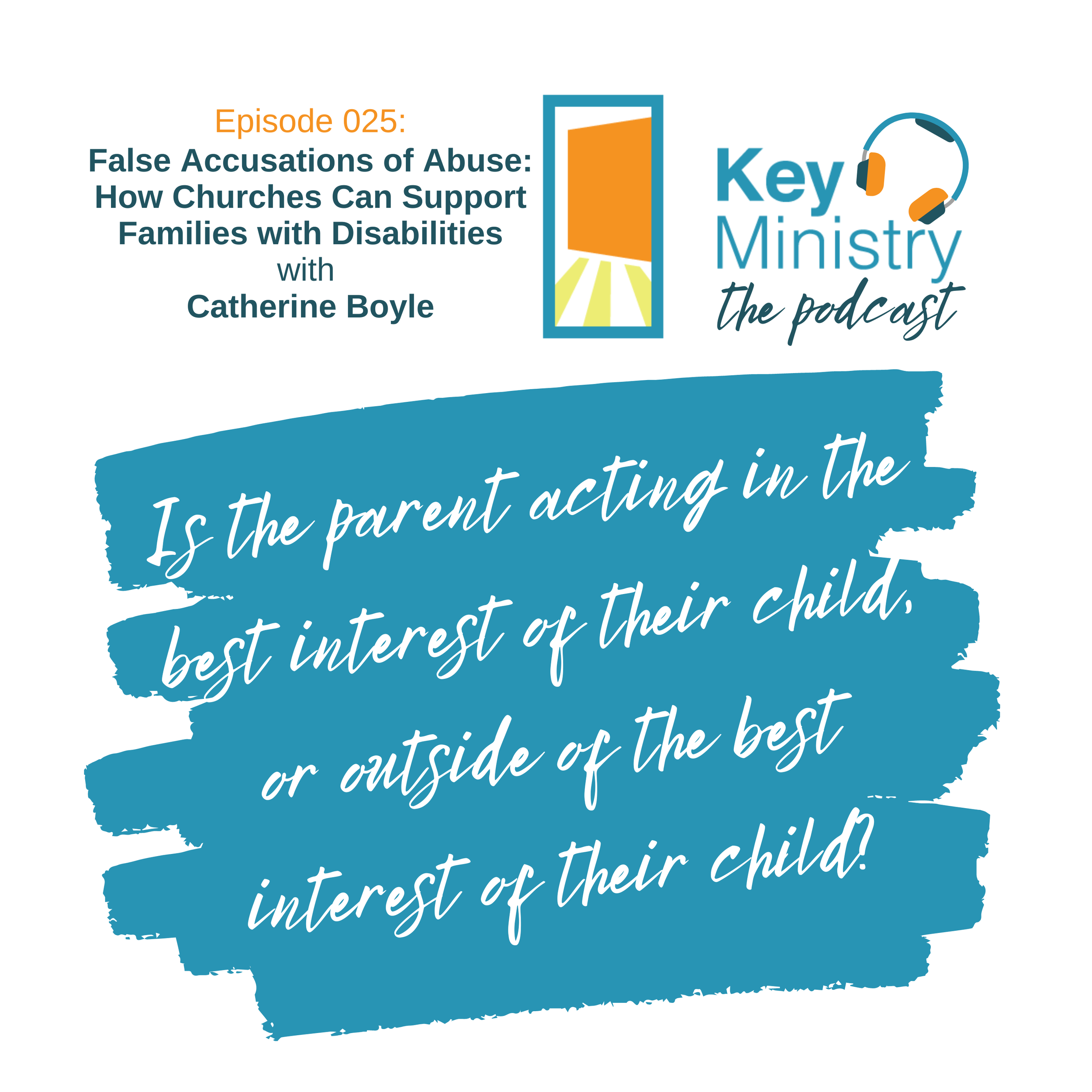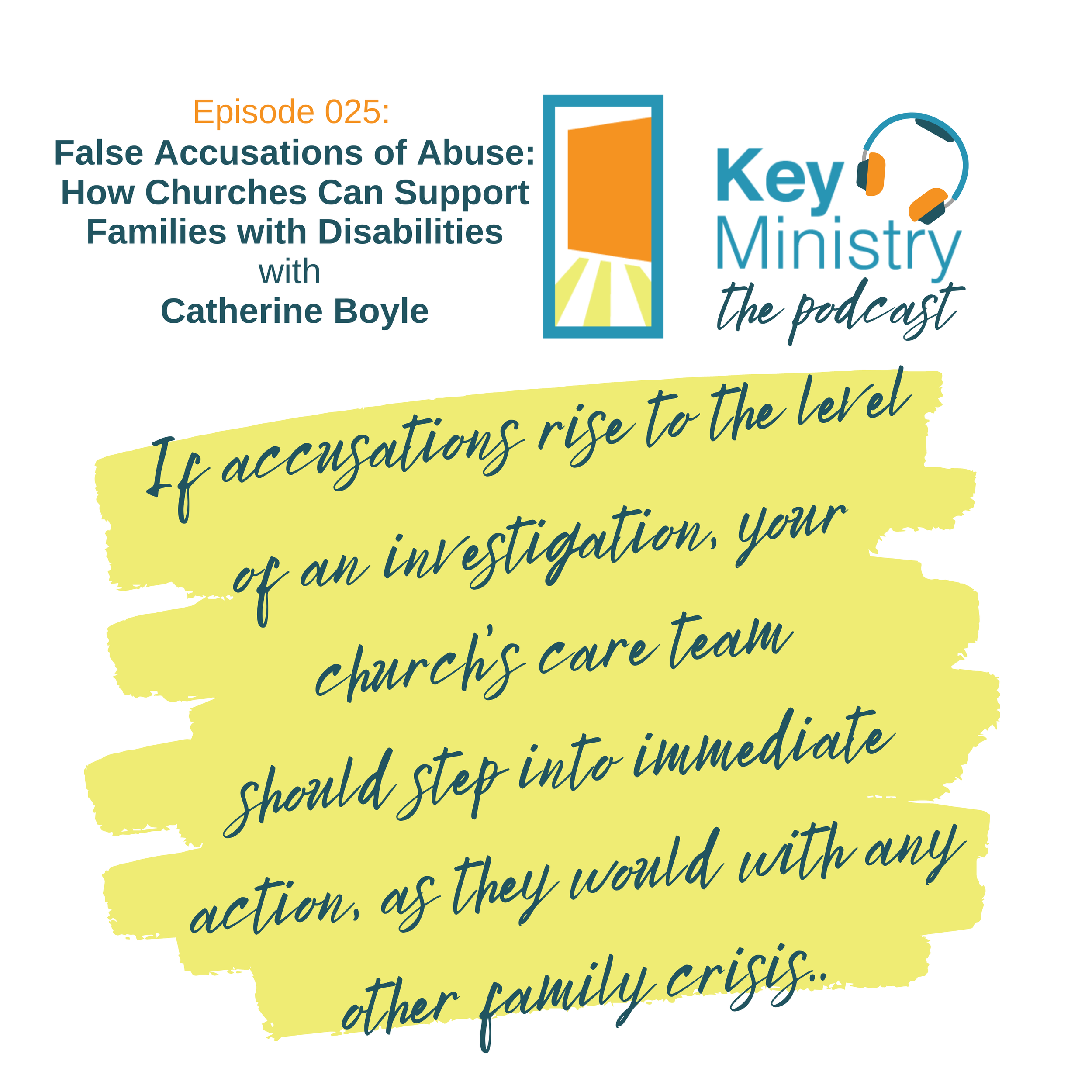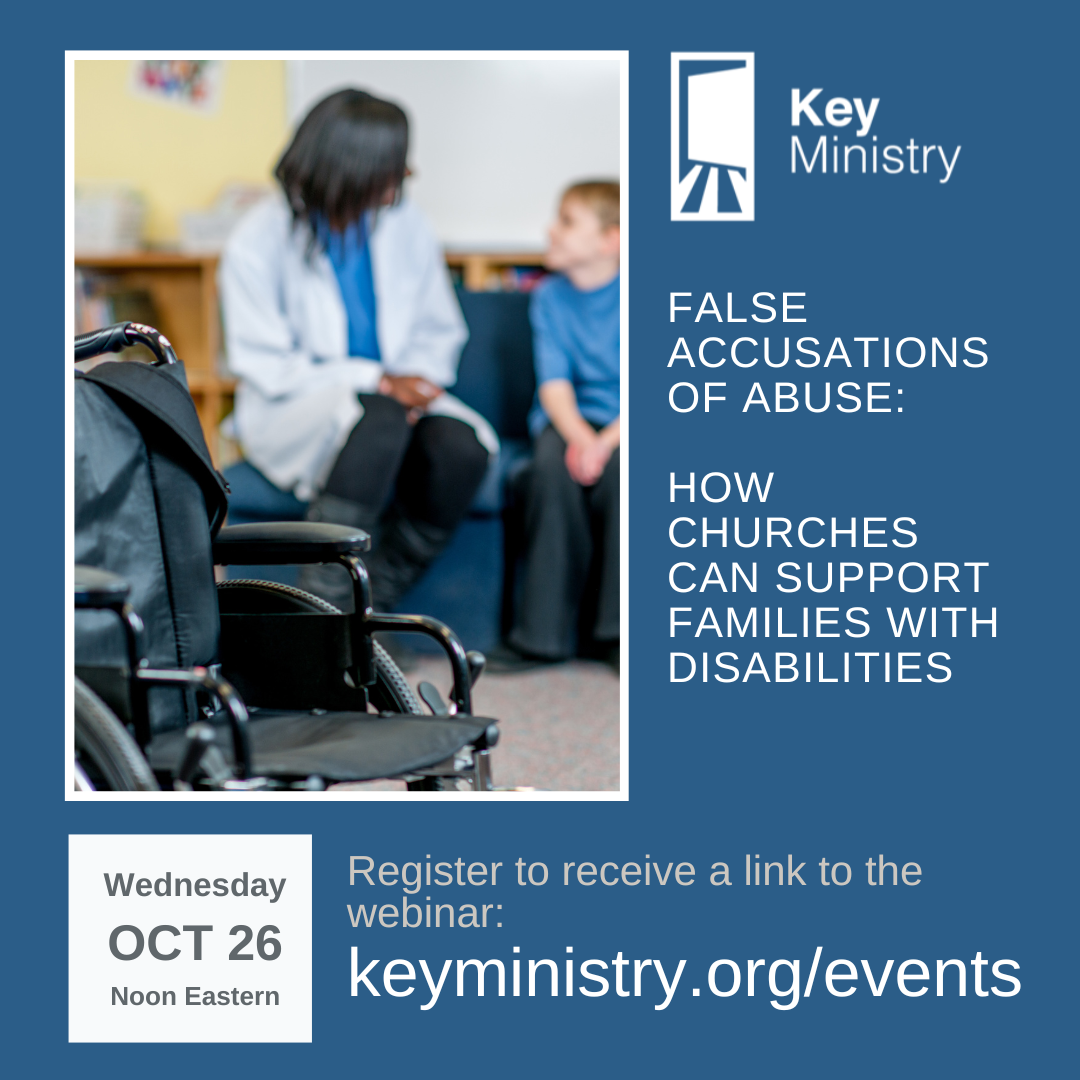In today’s episode, Catherine Boyle discusses how churches can use wisdom to detect or rule out abuse and how to support families with disabilities through abuse allegations and investigations.
Listen in your favorite podcast app!
Quick Links:
Event: False Accusations of Abuse: How Churches Can Support Families with Disabilities
Responding to Allegations of Abuse Publicly: Best Practices by CRCNA
Transcript:
It’s hard to read any news media or related websites without seeing reports of abuse.
In recent decades, many people once regarded as godly have been found to not be. Some who have held leadership roles within the Church have later been revealed to be hiding egregious behavior, often including various forms of abuse.
It is more important than ever for ministry leaders at every level—from the senior pastor all the way to the janitor who cleans your church facilities—to be aware that abusive behaviors are prevalent, and have some basic understanding of how to prevent abuse as well as what to do if abuse has been discovered.
But mixed within the abuses that are rightfully discovered and dealt with appropriately are far too many accusations that are completely false.
Unfounded allegations wreck the lives of individuals and families with alarming frequency. Sadly, this is a common occurrence in the lives of families living with disabilities. After all, evil’s primary weapon is deception.
So how do ministry leaders respond when someone within their church or local community is accused of harming a child with disabilities?
How can ministry leaders come alongside to support families in this particular form of crisis, while also not being naive to the possibilities of abuse?
We live in challenging times.
Jesus urged his disciples—including His disciples in our time—to be “wise as serpents and innocent as doves.” We need to understand and recognize what is evil, but not engage in it ourselves. Sadly, too often Christians are good at the ‘innocent as doves’ part, but not very good at the ‘wise as serpents’ part. Reality is that we often need both kinds of wisdom to work together.
This certainly applies to situations involving accusations of child abuse; such situations require incredible discernment. In addition to Jesus’ words and admonitions, ministry leaders can and should learn from the whole counsel of scripture to develop wisdom and discernment. The Bible has many examples of wisdom and getting to the heart of seemingly complex issues using discernment. Solomon’s wisdom in handling the conflict between two women arguing over a baby is a clear example.
No matter what, “the role for the church is to provide the pastoral care and loving community that is needed for each person and for the church community to navigate through this difficult time.” The most vulnerable individuals—in this case, the person with a disability and any other children—should be the first priority.
The following questions are designed to help ministry leaders navigate such scenarios with wisdom in this particular form of crisis, while always looking to provide appropriate support for the vulnerable people involved. This list is not mean to be a comprehensive, or to apply to every situation, rather to serve as a starting point for discernment.
The accuser:
Is the accuser open and transparent about the accusations? Is there more than one accuser? Have there been accusations and/or investigations of the individual or family in the past? What were the conclusions?
Does the accuser have documentation to prove the truth of the accusations? Are there other reasonable explanations for the evidence?
Has the accuser made accusations of abuse previously about other individuals? What was or were the outcomes? Has the hired caregiver—the accuser—ever previously been fired? What was the reason?
Particularly with individuals living with complex medical needs, medication interactions may cause other issues that look like abuse, but are really a symptom of something else entirely.
Example: Medications for blood-related issues often have the side effect of increased bruising. What may look like evidence of child abuse may simply be the result of medication or a medical condition.
Please note: Accusers and accused may both come from the same church family. The focus of this podcast and upcoming webinar is to ensure church support for the most vulnerable individuals in this scenario, that is, children with disabilities and their siblings, then the adults.
The family or individuals being accused:
Is the family or individuals being accused responding to the accusations in a way that is open and transparent? Was the family open and transparent about their family’s challenges before the accusations?
Parent caregivers have a different role than the role of others in the life of a child with disabilities. Many caregivers have to make decisions that can cause short term pain or burdens for their child, but are not abusive.
Is the parent acting in the best interest of their child, or outside of the best interest of their child?
Example: Parents of children with disabilities may need to go into the shower with their child. Do the parents wear a bathing suit or other covering to ensure appropriate boundaries are maintained? Are other children or adults aware of or allowed to see part of this process, in a way that maintains the dignity of the child with disabilities?
Is the parent known to provide necessary medical and mental health care for their child(ren)? Is the accused parent known to get their own health care?
Has the family recently experienced any kind of crisis, before the accusation? Is there a known medical or mental health diagnosis of either the parent or the child who may have been abused?
Please note: The family may have other challenges that do not rise to the level of a child protective services investigation, including mental health diagnoses.
Also note: Sometimes anxiety looks like hiding—the person with anxiety often wants to hide their anxiety! Strive to understand what is being hidden, and for what purpose. What is the behavior communicating (just anxiety, or something else the person does not want to be seen?). Is this a consistent behavior with the person being accused?
Munchausen and Munchausen by proxy (Munchausen):
Munchausen is essentially self-harm behaviors to get attention, in this case, attention from physicians or other medical care providers. By proxy means that an adult harms a child to get this attention. Munchausen is a diagnosable mental illness.
Is the parent or child known to exaggerate their medical challenges?
Have you ever seen or heard of questionable or unusual health challenges, bruising, behaviors etc from other children or the parents? Did any of these issues appear to be self-inflicted?
Has the accused adult seen many different doctors within the same specialty?
Example: has the parent changed pediatricians repeatedly, without a significant reason?
Relationship Dynamics:
Who is new to the scenario? Are the doctors, care providers etc making the accusation new to the individual with the disability? Do they fully understand or are they accurately interpreting the requirements of daily living?
Does the accuser have any other experience with the needs of the child or this diagnosis? Are there other trusted members of the church or local community who can confirm the needs of health condition, and whether or not the care provided by the family aligns with the confirmed needs associated with this diagnosis?
Are other children in the home experiencing issues similar to the accusation? Are the other children in the home acting out or having unexpected or unusual behaviors?
If family and friends are known to you, have there been any recent breaks in family or friend relationships? Do you know why? A person’s absence from someone’s life is speaking a truth.
Evaluate with both head and heart:
This is the essence of King Solomon’s decision regarding the women who were arguing over a baby. The King sought to protect the most vulnerable person in this situation, the newborn child.
In the current scenario, the person who lives with a disability is the most vulnerable individual. It is critical not to let personal feelings or relationship cloud your judgment.
Have you ever witnessed something that the accused person said or did that was later proven untrue? If you confronted the person, how did the person respond?
Have you ever witnessed anything suspicious with the care provider or the person with a disability? Have you heard any other rumors that are suspicious of the family prior to the current accusation? Have there been any other accusations?
Where is the deception?
You do not need to know all of the specifics to discern whether or not the accusations are true to be supportive of vulnerable people in the situation. Anyone can make any accusation. In our legal system, the burden of proof lies with the person making the accusation. Accusations without evidence are merely slander, libel or defamation.
No one wants their lies to be exposed. If deception is discovered, whether from the accuser or the accused, the person who is being deceptive should be called upon to provide further evidence or support for the truth.
Scripture commands that every matter be confirmed by two or three witnesses. Pray and seek the guidance of the Holy Spirt, in God’s Word, but it is also wise to seek counsel from a trusted advisor or friend who is completely outside of the situation.
Whether or not a family is falsely accused, if accusations rise to the level of an investigation, your church’s care team should step into immediate action, as they would with any other family crisis. Mental health support should be included, because these kinds of investigations are often deeply traumatic to all the individuals involved, in particular the most vulnerable person with a disability.
We will discuss this issue in much more detail on our October 26 webinar. Register to join.






